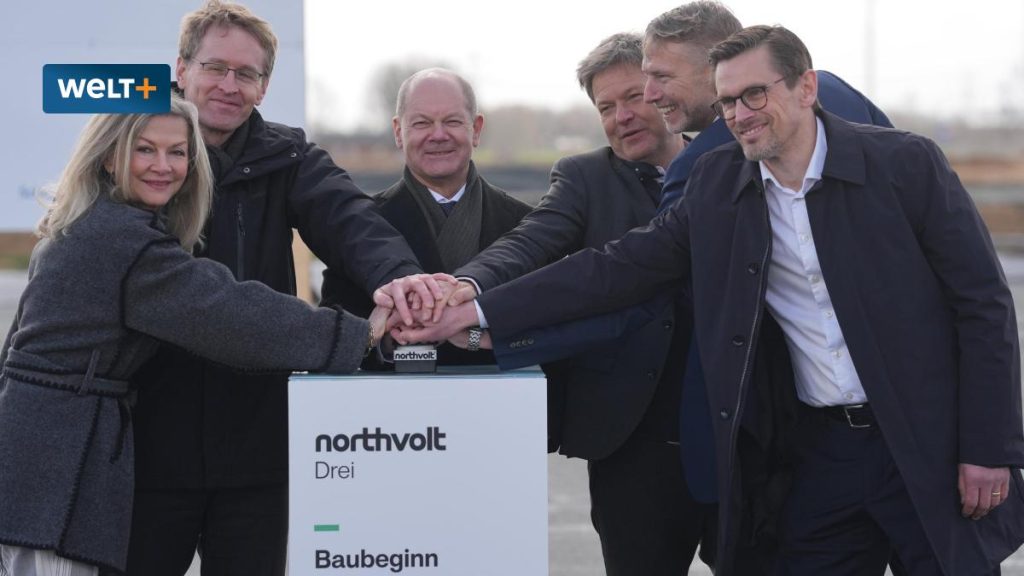German Chancellor Scholz and Green Party leader Habeck came together on a field in Schleswig-Holstein to celebrate the start of construction for a new battery factory. The multi-billion-euro investment is expected to boost the economy in the northern region of Germany. Scholz emphasized the strategic importance of the factory for Europe as a whole, highlighting the potential benefits for the entire continent. While the project holds great promise, its success is far from guaranteed.
The new battery factory represents a major milestone in Germany’s push towards sustainable energy sources and reducing carbon emissions. With a growing demand for electric vehicles and renewable energy storage solutions, the factory is expected to play a crucial role in supporting the country’s transition towards a greener future. The government’s commitment to investing in clean energy technologies is evident in its support for the project, which is seen as a key driver for economic growth and innovation in the region.
Despite the optimism surrounding the new battery factory, there are still uncertainties and challenges that lie ahead. The success of the project will depend on various factors, including market demand, technological advancements, and regulatory frameworks. In order to compete in the global market, the factory will need to stay ahead of the curve and adapt to changing industry trends. Additionally, the sustainability and environmental impact of battery production will be closely monitored to ensure that the factory meets strict emissions standards.
The partnership between Chancellor Scholz and Green Party leader Habeck underscores the importance of bipartisan support for sustainable energy initiatives. By working together, politicians from different parties can collaborate on policy decisions that benefit the environment, the economy, and the well-being of the population. The government’s commitment to investing in clean energy technologies signals a shift towards a more environmentally conscious approach to economic development, paving the way for a greener and more sustainable future for Germany and Europe.
The construction of the new battery factory is also expected to create jobs and stimulate economic growth in the region. With an influx of investment and infrastructure development, local communities stand to benefit from increased opportunities for employment and business development. The factory’s impact on the local economy will be closely monitored to ensure that it aligns with government priorities for sustainable growth and social welfare. By boosting the regional economy, the project has the potential to revitalize communities and improve living standards for residents in the area.
In conclusion, the launch of the new battery factory in Schleswig-Holstein represents a significant step towards achieving Germany’s goals for sustainable energy production and economic growth. The success of the project will depend on a combination of factors, including market demand, technological innovation, and political support. By investing in clean energy technologies and promoting green initiatives, the government is setting a positive example for other countries to follow. The collaboration between Chancellor Scholz and Green Party leader Habeck highlights the importance of political unity in addressing environmental challenges and fostering sustainable development. As the factory begins production, all eyes will be on its impact on the region and its potential to drive positive change for Germany and Europe as a whole.















